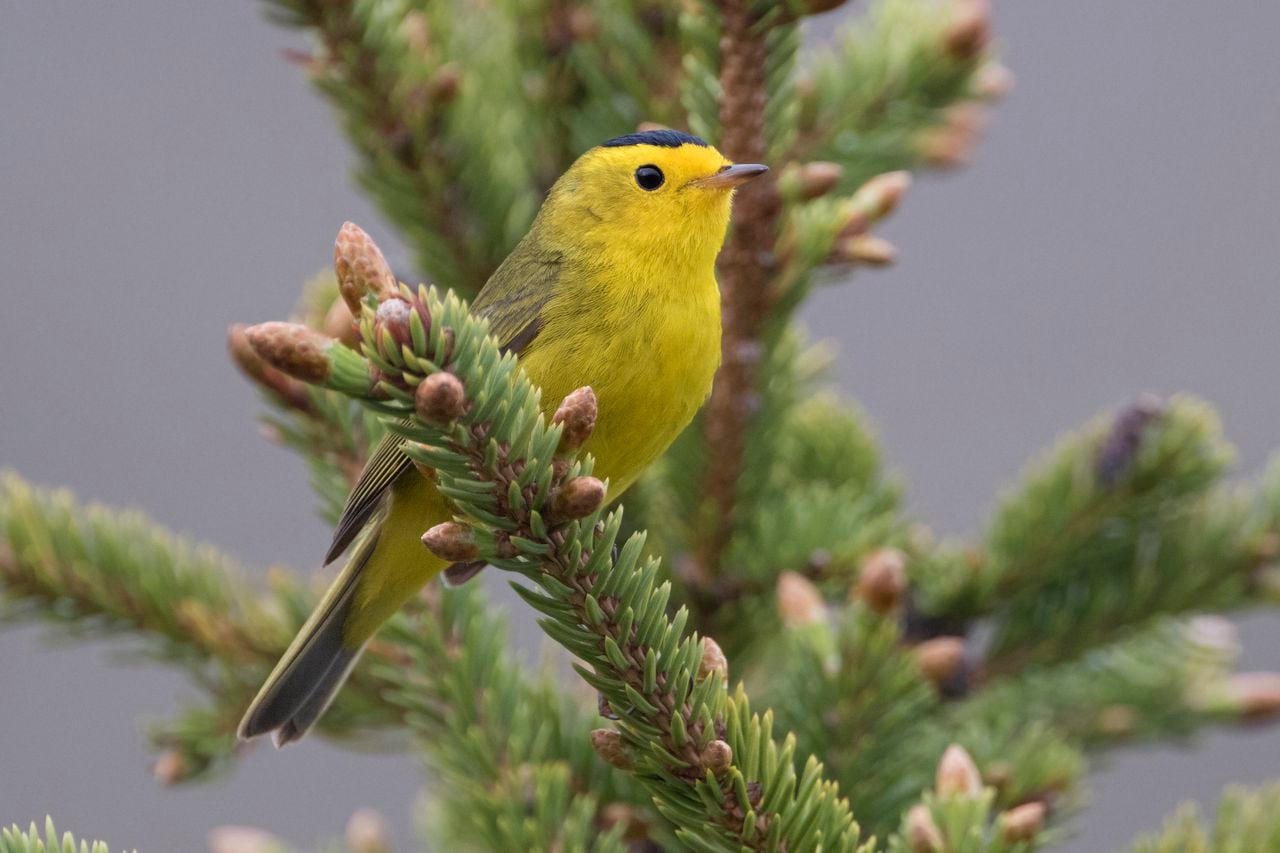âThere is power in a nameâ Ornithologists prepare to rename birds that once honored slaveholders
When Isaiah Scott saw the Bachman’s Sparrow fly over a plot of pine savanna in South Carolina he was thrilled at the sight of the elusive creature.
But the experience turned sour when the 20-year-old ornithologist learned of Reverend John Bachman, the pastor after whom the sparrow is named who defended slavery and supported the secession of southern states during the Civil War.
“Sometimes I wonder, if I were to go back in time and meet this guy, what would that experience look like? What would he say about me? What would he say to me? Some people think, ‘It’s just a name and we don’t have to think about it that deeply,’ but it’s kind of hard not to. And it just tarnishes the joyful experience that birdwatching brings to people.”
This year a new name may be on the horizon for Bachman’s Sparrow as the American Ornithological Society (AOS) seeks to rename up to 80 bird species named after people. The project comes in response to pressure from avid birders, ornithologists and environmental scientists, who find the eponymous names a hindrance in the field and an unsettling reminder of a dark past for Black and Indigenous people.
“There is power in a name, and some English bird names have associations with the past that continue to be exclusionary and harmful today. We need a much more inclusive and engaging scientific process that focuses attention on the unique features and beauty of the birds themselves,” AOS President Colleen Handel said in a statement announcing the plan. “Everyone who loves and cares about birds should be able to enjoy and study them freely — and birds need our help now more than ever.”
For many birders, the imminent name changes are long overdue.
Scott started rallying behind name changes for birds in the summer of 2020, after the police killing of George Floyd sparked a national uprising and racial reckoning. That same summer, a video of a white woman threatening to call the police on Black birder in Central park went viral.
Scott had just joined grassroots organizers at Bird Names for Birds, a coalition of scientists and hobbyists pushing to end the practice of eponymous bird names.
Later that year, AOS renamed the thick-billed longspur, a small prairie songbird found on the Great Plains. The bird’s original name honored amateur naturalist and confederate general John P. McCown.
Corina Newsome studies wildlife conservation at Georgia Southern University. As a Black ornithologist, racial justice is a core tenet of her work. She helped co-found Black Birders Week, an annual event that brings together Black naturalists and conservationists for birdwatching. Newsome said she’s always found it strange that Western scientists named living things after people, especially people who colonized indigenous lands or advocated for the enslavement of Black people.
Lewis’ woodpecker was named after Meriwether Lewis of Lewis and Clark, the duo who led the expedition to explore land acquired through the Louisiana Purchase, a sale that granted the U.S. authority over more than 800,000 acres of land that were owned, occupied, and ruled by Native Americans.
“Having that kind of possessive approach to our description of living things has always rubbed me the wrong way,” Newsome said. “When I realized that I’m essentially being forced to honor people who denigrated my ancestors because it’s the status quo and no one ever questioned it, I remember feeling very, very discouraged and kind of grossed out at what I was perpetuating. Birds don’t deserve that. Neither do I, or other Black and Indigenous people.”
Audubon Society chapters across the U.S. had similar reckonings in 2020 and some chose to break away from the legacy of John James Audubon altogether by dropping “Audubon” from their names.
Audubon was a prominent naturalist, an ornithologist and illustrator. He was also a slaveholder and an outspoken opponent to the abolition of slavery. Audubon relied on the labor of enslaved Black people, forcing them to paddle his canoe on his hunt for pelican specimens, to complete one of the greatest ornithological achievements to date — 1827′s The Birds of America — all while espousing the enslavement of Black people.
“Moving away from the eponymous names is a move in the right direction toward making birding more welcoming and inclusive for all peoples,” said Dottie Head, the Director of Communications for Birds Georgia.
In November, Birds Georgia voted unanimously to change its name from Georgia Audubon Society after six months of deliberation and community outreach. In a particularly moving meeting with community members, Head remembers a constituent standing in front of a large audience and holding up a photo of their grandmother, who had previously been enslaved.
Head and fellow birders hope to see AOS select names that highlight each bird’s distinct characteristics. The Wilson’s Warbler, for example, named after the father of ornithology Alexander Wilson, who is said to have dehumanized Black people in his diaries, might be better suited as the black-capped warbler.
“There’s been a lot of really fun chatter on social sites about what they should rename [the birds]. The thought that I tend to adhere to is that it needs to describe what you’re looking at,” she said.
Whitney Grover, Deputy Director of Golden Gate Bird Alliance (formerly Golden Gate Audubon Society) looks forward to seeing Bewick’s Wren take a new name this year.
“Each species of animal is what it is today because of millions of years of evolution and millions of interactions with other creatures, plants, the climate, everything. It’s so overwhelmingly beautiful that they exist today having been shaped by all of these factors over time,” Grover said. “To name a whole species after one human. It’s almost too small for the bird, right?”
The AOS promised an “open, inclusive and scientifically rigorous” approach to this year’s process of renaming birds. The organization could not be reached for comment for this story.
